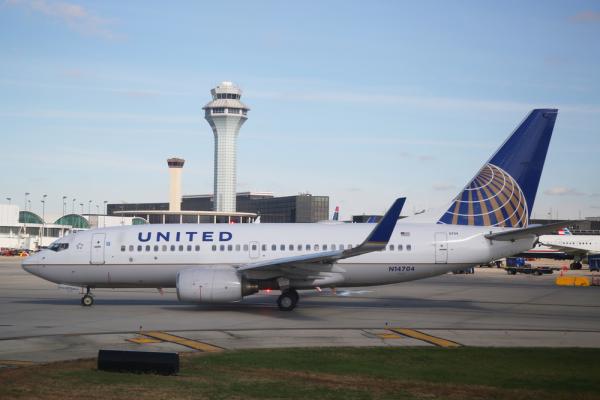I first heard about the incident on the United Airlines Flight 3411 from my friend on social media, who was sitting directly behind Dr. David Dao and captured video footage of the encounter as the authorities asked him to get off the plane. Dr. Dao explained that he could not and would not because he had duties as a physician early the next morning and had been traveling for 24 hours. Video footage showing him being forcibly removed from the plane went viral and people are rightly discussing how he was treated and what United Airlines should do in response.
I was initially proud that this elderly Asian-American man stood up for his rights, shattering the myth/stereotype of Asian Americans being passive and compliant, but my pride quickly turned to sorrow as I saw him treated like a piece of trash. As I checked my social media throughout the past few days, many of my Asian-American friends were speaking out about the incident but few people did otherwise (except the notable exception of Lisa Sharon Harper and some others). The incident may not have anything to do with race, but when one of your own is assaulted and treated like trash, then you feel the pain and the vulnerability that it can happen to you or others in your community.
Anyone who saw those videos probably shared some level of concern and disgust at the forcefulness of the security official’s actions. But this incident exposed a habit of public response to incidents of violence:
- initial defense that use of force was entirely appropriate in the given situation;
- a misstatement of what happened;
- blaming the victim;
- and sometimes (after enough public backlash) recognition that things were not handled properly.
By then, the damage has already been done, and the victim and family have to deal with the aftermath, while the public debates the merits of each side.
In this specific case, the CEO of United Airlines initially defended the company’s actions, saying that employees “followed established procedures” and blamed the customer for being “disruptive and belligerent.” While the CEO eventually apologized, he did so after significant public backlash.
People are discussing whether Dr. Dao deserved to be pulled off, with some people arguing that he should have just complied with the rules and obeyed the security officials. To these people, I ask: If this was your dad or granddad, would you ever excuse what happened with a bunch of rules? Instead of showing empathy with the victim, we throw rules at the problem to figure out who was right in the end.
On top of that, a local newspaper released a “breaking” news story to discuss Dr. Dao’s past behavior as if that had anything to do with the incident at hand. The insinuation that he deserved being treated with such violence due to past behavior is completely irrelevant to what happened in this specific scenario. Journalism that resorts to a “familiar shade-the-victim reflex” like the New York Times did in calling Michael Brown “no angel” excuses abuses of power and shifts the narrative against the victim, undermining proper treatment of facts and the pursuit of justice that is needed for those who were the victims of violent abuse. In a situation where both sides have a perspective, consistently digging up dirt on the victims diminishes the integrity of the situation at hand and tips the reader to feel less empathy for a victim of abuse.
The argument that this man should have been compliant with law enforcement authorities bears painful resemblance to when people of color are gunned down by police or brutally assaulted. Whether he had any legal right to stay in his seat is not the point (which he did by the way, since United’s own contract of carriage says people may be denied boarding involuntarily, not removed from the plane after they’re seated). Just because something is legal doesn’t make it right. Using violence as a means of resolving a situation that could have been de-escalated is not acceptable.
For those who follow Christ, we know that Jesus would command us to try to use reasoning and relationship with our brothers and sisters to make amends (Matthew 18:15-17) and to be peacemakers (Matthew 5:9). These interpersonal principles that constitute biblical wisdom for how people should treat each other should apply to how a business treats its customers as well. A core response of any service-oriented business or organization should be to do everything it can to accommodate the customer, not to put its business interests first in accommodating its own staff above the rights of a customer. As this writer aptly noted, “That is what prompted the widespread outrage online … the immorality of a system that leads to a degradation of human dignity. If corporate rules and the laws of capitalism lead to this, then they are unjust rules and laws. The ends show that the means are not justified.”
But these details and discussions can overcomplicate what should be a simple response. In Luke 10, the legal scholar wanted to draw limits around who his neighbor was. He wanted to throw rules around what was a very simple command. But Jesus consistently draws us to those who are broken and to the way of peace, to not overcomplicate what should be our simple response when someone is wounded and beaten up. He commanded us to not distance ourselves from those on the margins but to instead jump in and tangibly meet the needs of our hurting neighbors despite risk to ourselves.
So what can be done in this situation?
1. Express solidarity for the victim and his family.
The humiliation and pain this family must feel — not just Dr. Dao but his children and grandchildren — are real. They were thrown into the public spotlight without asking for it. Express sympathy for them, and pray that Dr. Dao would heal and receive some resolution in this situation.
2. Speak up to those in authority.
Write, call, and use social media to contact United Airlines to express dissatisfaction for how they handled the situation. You can call United Airlines directly at 1 (800) 864-8331 (as I did) to express your displeasure with them directly. Ask them what their procedures are for overbooking, and ask them to issue a public statement declaring what they will do differently as a result of the incident.
3. Stand in the gap when you see injustice happening around you.
Incidents like this are likely to happen again. Expressing solidarity with the victim may mean that we speak up to those in authority questioning what they’re doing and perhaps being willing to be subjugated to the same kind of abuse, treatment, or even arrest so people don’t suffer alone.
For my Asian-American brothers and sisters in particular, let’s be consistent in speaking out in all circumstances of unjust violence, not just when it impacts our own. Our experiences as people of color may not be the same, but the struggle against white privilege, “othering,” and discrimination are the same. When we own each other’s struggles as people of color, we will only be stronger for it.
Interested in more content like this? This article is part of our Faith in Action Newsletter. FIA is a monthly compilation of articles that empower people of faith to draw from a deep well and boldly advocate for a more just world. Subscribers receive monthly resources for prophetic preaching, practical insights for organizing, and reflections on spiritual leadership delivered to their e-mail. Subscribe here.
Got something to say about what you're reading? We value your feedback!

